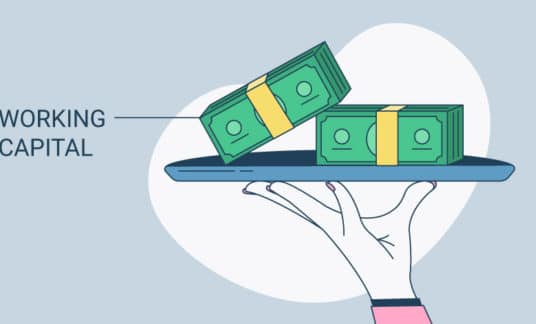When seeking funding to grow your startup business, you have to weigh the pros and cons of every financing option out there. Venture debt financing is an option for startups that haven’t started generating revenue, and therefore can’t qualify for a traditional small business loan. The benefit is not losing a percentage of your ownership, but the risk is that — due to high interest rates — it’s an expensive undertaking for new businesses. Venture debt financing entails taking on debt under strict terms that we’ll go into in this post. The application process is simple, but whether or not you qualify depends on one major factor.
What Is Venture Debt Financing?
Venture debt financing is debt taken on as startup capital or in the form of equipment your business requires. It’s a growth strategy for startups that need funding but have already imparted as much equity as they’re willing to give to venture capitalists. To dilute their company ownership before doing another round of equity funding, startups often take on venture debt. In fact, venture debt lenders like to look at your startup’s last equity raise to help them determine how much they’re willing to lend.
Terms of Venture Debt Loans
Venture debt is classified as “senior debt,” which means it has the highest priority level for repayment if the company files bankruptcy. Keep in mind, this means the loan is low-risk for the lender, but high-risk for the business borrowing the money. Instead of paying with equity, your company pays back the business loan with interest. Typically, a company pays back their venture debt to a lender within 3 to 5 years, at an interest rate of 8 to 12 % on average.
Types of Venture Debt Financing
While all venture debt financing aims to fuel startup growth, different lenders issue different types. For example, one type of venture debt financing involves leasing the expensive equipment a startup requires in order to open for business. Venture debt can also be issued as a business line of credit. Typically, however, it’s a “cash in the bank” loan like a traditional one.

Do You Qualify for Venture Debt Financing?
Venture debt financing is more accessible to businesses with a track record demonstrating their history with venture lenders, such as venture capitalists. While this makes it hard for some businesses to qualify for venture debt financing, it’s still easier for startup companies to qualify for this type of loan. Unlike traditional small business loans, it doesn’t require you to demonstrate a positive cash flow. You don’t even have to be open for business to secure a venture debt financing. All you need is to show you have a good track record with your investors. That’s because venture lenders save time and money by going off your history with previous lenders rather than checking your research behind your business plan and the strategy behind your financial projections.
How to Apply for Venture Debt Loan
Securing venture debt financing requires using your soft skills and demonstrating a track record with investors. Much like the process of acquiring venture capital in exchange for equity, you’ll pitch your company to venture debt lenders to convince them of why they should loan to you. If you decide you want to apply for a venture debt loan, here’s what the process looks like:
Prepare for Investors
Preparation is key to securing a venture debt loan because you’ll want to present investors a solid business plan. Collect materials that can help you demonstrate the desired loan’s impact on company growth. There are several points to have on paper to present your potential investors:
- Your business model
- The staff structure for your organization with defined roles for positions
- Your market research and unique market proposition
- Details about your product or service
- Your marketing strategy
- Your target audience with customer persona profiles
Whatever other data you can use to show how you’ll spend the desired loan to get measurable results.
Set Up Meetings with Venture Debt Lenders
Start setting up meetings with venture debt lenders as soon as you’re ready to present your startup to them. Your CEO or board members will need to convince lenders of your mission, growth plan and team’s capabilities. Talking points, however, should focus on your positive track record with your existing investors and any past lenders.
After all, venture debt lenders are gaining from the interest they collect on your debt payments, so they’re less concerned with the growth strategy of your company as they are with your credit history. Nonetheless, they want to see you have your ducks in a row, so presenting a completed business plan and marketing strategy is still crucial to meeting with your potential lenders.

Pros and Cons of Venture Debt Financing
Debt is always a serious undertaking. Before you decide whether taking on venture debt is right for your business, here are the pros and cons:
Pros of Venture Debt:
- You don’t impart equity. With venture debt financing, you retain control over your company and determine your own use of the funding, which isn’t the case for equity financing. Instead of trading ownership for funds, you’re taking on debt.
- It’s easier for startups to qualify. Venture debt financing is geared toward startups that don’t yet have a positive cash flow. Startups lack the numbers required to show a traditional small business lender. However, venture debt financing doesn’t require your business to have a financial history.
- Improves your credit. Showing you’ve taken on senior debt and paid it off is great for your business’s track record. It can help you secure a business loan in the future by building your credit history.
Cons of Venture Debt:
- Expensive. The trade-off is fast debt repayment with a high interest rate. Instead of putting your first-ever business revenue into your expansion, chances are, it’s going right back to paying your venture debt lenders.
- Puts your business at risk. Senior debt is the highest priority level of debt, which means it must be repaid first if your company has to file for bankruptcy. If your business is running out of money and can’t pay off the loan, the loan ultimately puts your startup at a high risk of failure.
- Hard to qualify without an existing credit history. It might be difficult to secure a venture debt loan if your business lacks any history with VC funding. Venture debt lenders tend to require experience with previous investors, whether equity lenders or otherwise.
Financing Your Startup for Sustainable Success
Acquiring venture debt can plunge your startup’s team into a “fight or flight” response under the pressure to pay off the loan in time. It’s great for combining with equity financing so you can maximize your growth while maintaining as much ownership as possible. It’s rewarding if you meet your projections for growth and pay it off in time. If you know you have a winning business plan and can clear your debt, then start setting up meetings with potential venture lenders. Without securing equity financing from venture capitalists first, however, it’s hard to secure venture debt financing — let alone pay it off.










